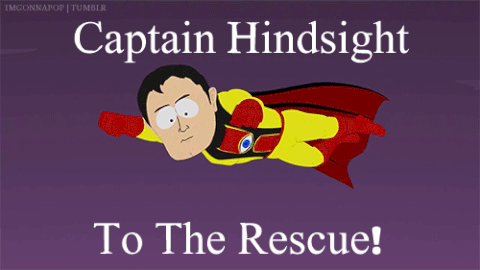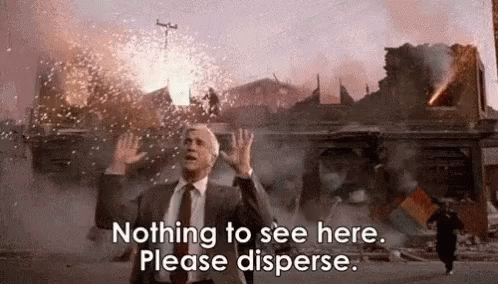 IV: Death as a Way of Life
IV: Death as a Way of Life
February brought worse news, as the first death outside of China was announced, a man from China who was resident in the Philippines, and who had been connected with the now-infamous market in Wuhan. He was, in fact, a close contact of the country’s first case. The next day Hong Kong also announced their first death from the virus. So far, all deaths had been linked to Wuhan, including one who had been on an evacuation flight to take them home. On February 5 a cruise liner called
Diamond Princess reported ten cases, but there were over 3,500 passengers and crew on the liner, which was near Yokohama when it was quarantined. The next day Dr. Li Wengliang, as mentioned above, died from the virus, having tried to warn of the dangers and having been arrested and censured for telling the truth. He was later proclaimed a Chinese martyr.
There were now over 10,000 cases in China, 31 in Europe, 120 in Asia, 2 in the UK and 11 in the USA including one person who died, giving the United States its first nasty taste of death from Covid-19. This death was particularly worrying as it led the CDC to conclude it was due to what was termed “community transmission”, (another term that would define 2020/21) meaning the virus was being spread from one person to another by close contact. Also worrying was that the woman infected died at home, suddenly becoming ill, staying at home rather than going to hospital or visiting her doctor, recovering then relapsing and finally dying over a period of a few weeks. She had not left the country. By now the total cases on the
Diamond Princess, which had always been expected to increase, stood at 86.
On February 8 it was confirmed for the first time that aerosol was a factor in transmitting the virus, so that it could be carried in human sputum, breath, sneezes and so forth. China now stood at a staggering 40,000 plus cases, with over 800 deaths, by far the largest total, though not surprisingly so. On February 11 the WHO named the disease as Covid-19 (
Corona
Virus
Disease 2019) and officially designated the virus itself as SARS-CoV-2. The same day, Japan confirmed its first death from the virus. Two days later, France reported the first death in Europe. The woman was a Chinese tourist, but soon that would change; once the virus had a hold, the people of China, who I suppose could be seen as its unwitting transport system, were jettisoned and the virus struck out on its own, hitting every country and every continent regardless of its relation, or lack of, to China.
This would not stop President Trump from repeatedly referring to Covid as “the China Plague”, nor violence being directed at Asian people, seen to be the cause of the virus by those whose brain a hungry zombie would starve trying to get nourishment from.

February 16 saw the number of cases on
Diamond Princess rise to 355. This was now almost ten percent of the cruiser’s complement. In addition, Japan had 59 cases of its own. One day later, the cruiser had another 100 cases confirmed. You could see where this was going. February 19 saw the offloading of passengers (with the total now at nearly 650 infected) to be returned to their country of origin. The next day the first two deaths from the ship were registered. Eventually there would be twelve deaths in all. The first death in Italy, which would become one of the biggest hot-spots for the outbreak, was confirmed February 21.
In the USA, the Trump administration continued to drag its feet and shrug, hoping that by ignoring it the virus would go away. I suppose at least they didn’t try to shoot at it! Only three states were able to test for the virus: California, Illinois and Nebraska. New Zealand, Israel, Iran and Lebanon joined the club nobody wanted to belong to, but all would eventually be members of, as each recorded their first cases. On February 22 Italy became the European country with the largest case number, 79, and two deaths. One single day later it became the country with the third largest number of cases in the world, as its cases climbed to 152. Afghanistan, Kuwait, Bahrain, Iraq, Algeria, Brazil, Austria, Croatia, Switzerland and Oman joined the party, and with no travel restrictions yet put in place - other than from China - people began importing the virus into their own countries.
Italy and Iran saw people return to Denmark and Estonia respectively, creating the first cases in both countries, while an Iranian man moved back to Canada, opening up Quebec to the disease for the first time. An Israeli travelling to Italy and an Iraqi travelling to Iran helped move things along for the virus. Iran now had 245 cases while Italy reported 655. Kuwait, Lebanon, Oman were all victims of Iranians visiting, while Norway had the dubious distinction of having both an Italian
and an Iranian spread the virus there. The Netherlands and Nigeria can also trace their first infections to an Italian tourist, the latter becoming the first sub-Saharan African country to fall prey to the virus. Northern Ireland was infected for the first time, again this being due to an Italian who transited through Dublin, so we were next on the list.
Iran had 388 cases and Italy 888 as February drew to a close. South Korea remained number two in the rankings, well behind China, with over 2,000 cases to its 80,000, and on the last day of February, this being a leap year, Ireland was hit with its first case. It had only been a matter of time. Other countries to report their first cases on this day included Ecuador, Luxembourg and Qatar.

This is a regular section I’m going to be featuring, where I examine, in hindsight, what could or should have been done in the run-up to, and indeed after, full blown pandemic status of the virus. It’s acknowledged by me that this is all said with the benefit of knowing what we know now, but still, there are some valid points I feel.
As I read this now, I’m increasingly struck by how almost comic the events of January and February 2020 were. Not in a look-at-that-guy-falling-over type of way, of course, but in terms of how the hell could we not see it, sort of thing. The idea of borders not being closed, or at least properly monitored, as the outbreak became an epidemic in China and then spread to a full pandemic across the world, is hard to get my head around, even though I was there as it happened. The thought of people crossing and recrossing national boundaries, going from country to country like blind and dumb supersonic snails or slugs, leaving the sticky trail of the infection behind them wherever they went, kind of boggles the mind. No country was restricted to travel to, other than China and a few smaller ones who took quick action which may have saved them from the worst. Europe basically shrugged, America laughed and Africa, at this point, probably barely knew what all the fuss was about with the white folks. Probably the only continent taking this seriously as they should was Asia.
But then we do have the benefit of hindsight, and we can see what happened when nations did begin closing borders, restricting air travel and locking down. Airlines, if they had to cut back on flights, would and did start to lose money, with a resultant slow trickle-down of loss of employment. Holiday destinations would and did suffer, and the idea of industry being slowed, much less stopping altogether as it had to eventually, surely filled everyone with dread, as it should. To say nothing of the civil unrest such measures would, and did, bring. Besides, at this point the competent authority, the main voice of health advice was the WHO, and though they had declared SARS-CoV-2 a PHEIC, it had not yet, according to them, reached the stage where it could be called a pandemic.
Generally speaking, governments do not like making decisions, or perhaps I should say they don’t like to take responsibility for the decisions they may be forced to make. Politicians, as I already noted, are all about their next term, how to survive, how to continue, how to get elected again, or to a higher office. They don’t like doing things that upset potential voters, and mostly try if possible either to avoid doing them, or if not possible, look for someone else onto whose shoulders they can pass the blame. And with Coronavirus, there was a ready-made scapegoat waiting, so they would do nothing until the WHO told or urgently advised them to do so. Then they could just claim - as would be the truth, if slightly simplified - that they were simply following the advice of the people who knew best what had to be done.
Surely governments across the world, certainly in Europe at least, which has turned out to be one of the major sources of deaths and cases, could have come together and made a decision, without waiting for the word from the WHO? But I suppose then they could be accused - by the opposition parties, always ready to score points even in a humanitarian worldwide emergency, and by their own people, those all-important voters - of moving too fast, of panicking, of not listening to the advice of the WHO. Speaking of panic, no government would want to engender such in their populace, which is probably another reason why they played the whole thing down as much as possible, most countries taking the line that it was “someone else’s problem” and unlikely to reach their shores. Even if it did, they assured their jittery voters, they would contain it. It would never get as bad in Germany, France, Italy (um), Switzerland, the UK, the USA as it was in China.
Never.

Someone, I believe it may have been President Trump’s mouthpiece, spokeswoman for the White House Press Kelly-Anne Conway, sneered that Coronavirus would never enter the United States. There spoke either a liar, someone who was desperate to calm the public at any cost, or someone who did not in any way understand how this virus worked. Perhaps all three. In any case, as we know now, and America certainly knows to its tragic cost, she couldn’t have been more wrong.
To be fair, at this point nobody still knew quite what Coronavirus was. Nobody knew with any certainty where it had originated - we still don’t - and for a long time there was no vaccine, so much of the efforts of medical staff and scientists went into trying to contain rather than neutralise the virus, and inevitably many mistakes were made. Conflicting public health advice, from the WHO and CDC to our own HSE (Health Service Executive) would confuse and anger people, telling them this thing then that, countermanding information it had put out a few days later, leaving everyone looking at each other and wondering what they were supposed to do? We were all winging it, we understood that: nobody in our generation had ever lived through or dealt with anything like this before. Still, we expected our men and women in white coats to know what they were doing, to tell us what we needed to do, and to keep us safe.
But nobody could.

Belligerence by the leadership of certain countries didn’t help. It’s been well documented (but I’ll of course be going over it again in detail) how America responded, or rather didn’t, but they weren’t alone in trying to wish away or laugh at the virus. Brazil, Russia, many Eastern European countries, the UK to some degree, all seemed to think that it was being blown out of proportion - or conveyed this to their people, possibly to make them look strong and unafraid - and rather like Dickens’ Mr. Podsnap tried to wave the thing dismissively away as if it were of no account. By dint of this, a basic idea developed that those leaders who adopted what we could call the Podsnappery line were seen as strong leaders, refusing to bow down to fear and join in the slowly-growing panic that was gripping the world, and those that reacted to the virus with caution and tried to protect their people, who listened to the science and understood how serious things were, could be looked on as weak, easily-led and easily-duped, and not representing the good of their people.
The world was slowly beginning to split, as people chose their side. It would only get worse as the months went on.